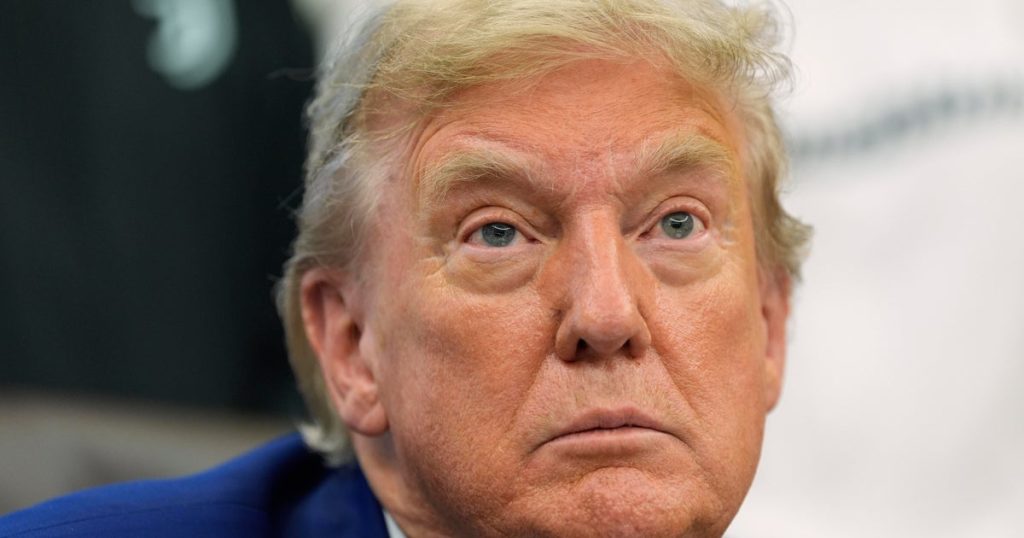As tensions between the United States and Iran escalate, President Trump is contemplating potential military action against Iranian nuclear facilities. This decision comes amidst increased surveillance of Iranian operatives in the U.S. by law enforcement firms, primarily motivated by threats linked to Hezbollah and Iran-backed groups. The situation has drawn significant attention from both the White House and intelligence agencies, who fear repercussions following historical provocations.
| Article Subheadings |
|---|
| 1) Trump’s Consideration of Military Action |
| 2) Increased Surveillance of Iranian Operatives |
| 3) Historic Context of U.S.-Iran Relations |
| 4) Potential Targets and Security Measures |
| 5) Implications of Iran’s Threat of Retaliation |
Trump’s Consideration of Military Action
President Trump is weighing the option of striking Iran’s uranium enrichment facility at Fordo, as part of a broader initiative to contain Iranian military advancements. Discussions within the administration suggest that a significant decision regarding this potential military action is expected within the next two weeks. White House Press Secretary Karoline Leavitt communicated that there exists a “substantial chance of negotiation that may or may not take place” with Iran before any military steps are taken. The discussions come in light of escalating tensions following Israel’s ongoing military operations against Iranian targets, which have been part of a wider strategy to curb Iran’s nuclear ambitions.
Increased Surveillance of Iranian Operatives
In response to the heightened threat from Iran-backed operatives, U.S. law enforcement officials, including the FBI, have intensified monitoring activities. Following the initiation of Israel’s Operation Rising Lion earlier this month, FBI Director Kash Patel has augmented efforts to track possible domestic sleeper cells associated with Hezbollah, a designated terrorist organization. This move comes in the wake of a series of intelligence assessments indicating an increase in the likelihood of threats from operatives affiliated with the Iranian regime. Reports suggest that U.S. intelligence agencies are particularly concerned about the possibility of further plots against critics of the Iranian government, following previous incidents involving assassination attempts and surveillance.
Historic Context of U.S.-Iran Relations
Since the assassination of Iranian General Qasem Soleimani by U.S. forces in January 2020, concerns surrounding Iranian capabilities and intentions have amplified. The General’s death marked a pivotal moment in U.S.-Iran relations, leading to increased hostilities and the implementation of tighter security measures in the U.S. The repercussions of his death have continued to reverberate throughout the region, with fears that Iran may retaliate against perceived U.S. aggressions. In this heated climate, law enforcement agencies have been unearthing plots aimed at harming American officials, signaling a pressing necessity for heightened vigilance.
Potential Targets and Security Measures
Authorities indicate a variety of potential targets that may be at risk from Iran’s operatives. The FBI has prosecuted plots targeting notable figures, including former national security adviser John Bolton and Iranian-American journalist Masih Alinejad, both of whom are recognized adversaries of the Iranian regime. In light of actual threats, Bolton was granted Secret Service protection in 2021; however, President Trump has since revoked this protection in a move critics describe as alarming. Notably, as intelligence efforts ramp up, both federal and local law enforcement agencies are collaborating to deter such potential attacks.
Implications of Iran’s Threat of Retaliation
Amidst the backdrop of these considerations, Iran has vowed to retaliate if the U.S. proceeds with military strikes. This response forms part of Tehran’s broader strategy to safeguard its nuclear interests and assert its regional standing. Iranian officials have consistently emphasized their readiness to counter any U.S. threats, complicating the calculus for American leadership as they navigate options. Escalation of military actions could lead to an unpredictable security environment both within the Middle East and globally, prompting concerns from international observers who caution against further military escalation.
| No. | Key Points |
|---|---|
| 1 | President Trump is weighing military strikes against Iran’s nuclear facilities. |
| 2 | Increased surveillance of Iranian operatives in the U.S. is underway. |
| 3 | Intelligence assessments indicate a heightened threat from Iranian operatives. |
| 4 | The potential military action could lead to broader regional implications. |
| 5 | Iran threatens retaliation against any U.S. military action. |
Summary
The ongoing tensions between the U.S. and Iran present a volatile security landscape, particularly as President Trump considers military action against Iranian nuclear facilities. Increased domestic surveillance efforts reveal a wariness about potential retaliatory threats, which could impact American interests at home and abroad. As both sides navigate a dangerous diplomatic minefield, the international community watches closely, aware that one miscalculated move could lead to far-reaching consequences.
Frequently Asked Questions
Question: What actions is President Trump contemplating against Iran?
President Trump is considering potential strikes against Iranian nuclear facilities as a response to rising tensions and ongoing military campaigns against Iranian targets.
Question: Why is there increased surveillance of Iranian operatives in the U.S.?
Increased surveillance is a reaction to perceived threats from Iran-backed operatives, especially after the assassination of General Qasem Soleimani, which has heightened concerns about domestic attack plans.
Question: What could be the regional implications of U.S. military action against Iran?
Any military strikes could escalate tensions in the Middle East, potentially triggering retaliatory actions from Iran and affecting U.S. interests and allies in the region.


